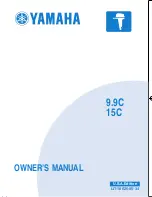
Award BIOS Setup Guide
25
Boot Sequence: With the default setting the BIOS first attempts to boot from drive A: and then, if
unsuccessful, from hard disk C:. User can select other boot up sequence. Available sequences are
“A,C,SCSI”, “C,A,SCSI”, “C,CDROM,A”, “CDROM,C,A”, “D,A,SCSI”, “E,A,SCSI”,
“F,A,SCSI”, “SCSI,A,C”, “SCSI,C,A”, “C only”, “LS120/ZIP,C”.
Swap Floppy Drive: Choose Enabled or Disabled. This option lets end users to change the Drive
A: or B: to others.
Boot Up NumLock Status: Choose On or Off. On puts numeric keypad in Num Lock mode at
boot-up. Off puts numeric keypad in arrow key mode at boot-up.
Boot Up System Speed: Choose High or Low. Set the CPU timing at Boot Up, the default is
high.
Gate A20 Option: Choose Fast (chipset handled) or Normal (keyboard handled). The gate A20
is a device used to address memory above 1Mbytes. Initially, the gate A20 was handled via a pin
on the keyboard. Today, while keyboards still provide this support, it is more common, and much
faster, for the system chipset to provide support for gate A20.
Typematic Rate Setting: Choose Enabled or Disabled. Enabled will determines the typematic
rate defined by following two options.
Typematic Rate: The number selected 6,8,10... indicates how fast the number of characters can
response in one second.
Typematic Delay (Msec): The number selected indicates the time period between two identical
keys appear.
Security Option: Choose Setup or System. If system is selected, the password should be set.
PCI/VGA Palette Snoop: Select Disabled or Enabled. If Enabled the MPEG Card can
synchronised with PCI/VGA.
Assign IRQ For VGA: Choose Enabled or Disabled. Enabled will assign an IRQ to Graphic
Controller.
OS Select For DRAM > 64MB: If the system memory is larger than 64MB and running OS/2,
please select OS2. However, if it use other operating system, please select Non-OS2.
Furthermore, if the system memory is less than 64MB, the BIOS will ignore this function.
HDD S.M.A.R.T. capability: Choose Enabled or Disabled. Enabled will support the hard driver
S.M.A.R.T. feature (Self-Monitoring, Analysis and Reporting Technology).













































